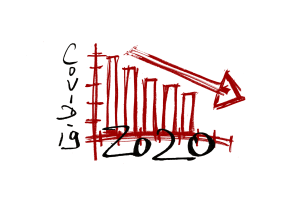 Let’s level; Covid19 has wreaked absolute havoc for public health, for businesses and has decimated the economy during its already over-stayed welcome.
Let’s level; Covid19 has wreaked absolute havoc for public health, for businesses and has decimated the economy during its already over-stayed welcome.
As governments around the Globe desperately attempt to balance keeping their public safe whilst kickstarting their economies, we are hearing the more and more of the world’s business leaders and health professionals calling out for a green and healthy recovery. But what does this mean in real terms?
Research from Oxford University, which has involved some of the world’s leading economists, has shown that this approach could in fact deliver a better result for economies as well as the environment.
‘Covid-19 is falling like a daily hammer blow on our economy, putting the livelihoods and employment prospects of many millions at risk. By aggressive investment in green skills and the creation of a swathe of green economy employment opportunities the UK can buffer COVID-19’s impacts and simultaneously deliver a safer climate future” Dave Reay, Professor and Chair in Carbon Management & Education and Executive Director of Edinburgh Centre for Carbon Innovation, University of Edinburgh.
Healthcare professional back going green:
But businesses and the economy are not the only concerns to be taken into consideration.
On May 26, following over 5.6 million confirmed worldwide deaths related to Covid19, over 350 organisations representing over 40 million health professionals (approx. half of the global medical workforce) joined this call for action by writing an open letter to the G20 leaders calling for a similarly ‘Healthy Recovery’.
The letter urged that public health systems needed to be strengthened and warned of how environmental degradation could continue to unleash future diseases.
These signatories also wanted to see reforms made to fossil fuel subsidies, with a call for support to be shifted towards renewable energy, which they highlighted would make for cleaner air, cut greenhouse gas emissions and help to spur economic growth of nearly $100tn in the next three decades.
“Climate change poses an imminent and serious threat to the health of the world’s population. We are calling on governments to make sure that pollution levels do not return to previous levels, so that our children and grandchildren will be able to grow up healthily in a liveable and sustainable climate. Only by investing in both healthcare and the environment can we create a sustainable future.” Annette Kennedy, president of the International Council of Nurses
What are the prospects for a green recovery?
The research carried out by Oxford University has shown several recovery options that promise to bring both short-term high economic impact and long-term structural change. It has also highlighted the potential for strong alignment between the economy and the environment, suggesting that green projects will create more jobs, deliver higher short-term returns and lead to increased long-term cost savings, when compared to traditional economic stimulus.
“…this report shows we can build back better, keeping many of the recent improvements we’ve seen in cleaner air, returning nature and reduced greenhouse gas emissions.’ Professor Hepburn, Oxford University
As part of this research, a survey conducted amongst 231 financial and banking experts from across the globe where over 700 different stimulus policies were catalogued, and it was found that respondents also saw a ‘green route’ out of the crisis as also being highly economically effective.
So, what does a ‘green recovery’ look like?

What this might look like in real terms for Governments, and businesses, moving forward include prioritising investment into industries, projects or developments, that accelerate both short-term high economic impact and long-term structural change to ensure that the 2050 climate goals are met under the Paris Agreement.
One strong recommendation for investment lay in renewable energy production, such as wind or solar, as previous research has shown that clean energy infrastructure construction is particularly labour intensive, creating twice as many jobs per pound spent as fossil fuel investments.
Other recommendations include building efficiency projects, clean R&D spending, natural capital investment for ecosystem resilience and regeneration, investment in education and training and structural employment opportunities stemming from plans for de-carbonisation as well as suggesting additional investment in broadband internet to increase coverage, electric vehicles and nature-based solutions.
Unfortunately, for the aviation industry, unconditional airline bailouts performed the most poorly in terms of economic impact, speed and climate metrics, as did other carbon-intensive industries.
‘Shaping the national and global recovery from the coronavirus pandemic in a way that supports the response to climate change and other environmental threats simply makes sense – not only does analysis suggest that green recovery packages deliver greater economic benefit, but investing appropriately in research, innovation, infrastructure and skills training, and matching that with robust institutional structures, will help create a fairer, more resilient, sustainable world with benefits for all.’ Emily Shuckburgh, Director of Cambridge Zero, University of Cambridge
Conclusion:
In summary, agility, the ability to adapt and survive and ‘build back better’ are all part of the mix that we need to see for a successful recovery.
“Whereas organisations used to describe agile change as “fixing the plane while it flies,” the COVID-19 pandemic has rewritten the rules of upheaval in modern times.” Punit Renjen, Deloitte Insights
For each of us involved in leading business, organisations or even day-to-day family life, we are “no longer fixing the plane in mid-air as we’re having to rebuild it” (Deloitte), but in every crisis lies opportunity, it is up to each of us, in even the smallest of ways to work towards building in change for the better, and ensuring that the future is one that we can all, as a global community, both survive and thrive in for generations to come :
“Covid-19 has forced the world to pause and take stock, providing us with a unique opportunity to make changes that will benefit the planet and all the people on it,” Annette Kennedy, President of the International Council of Nurses

